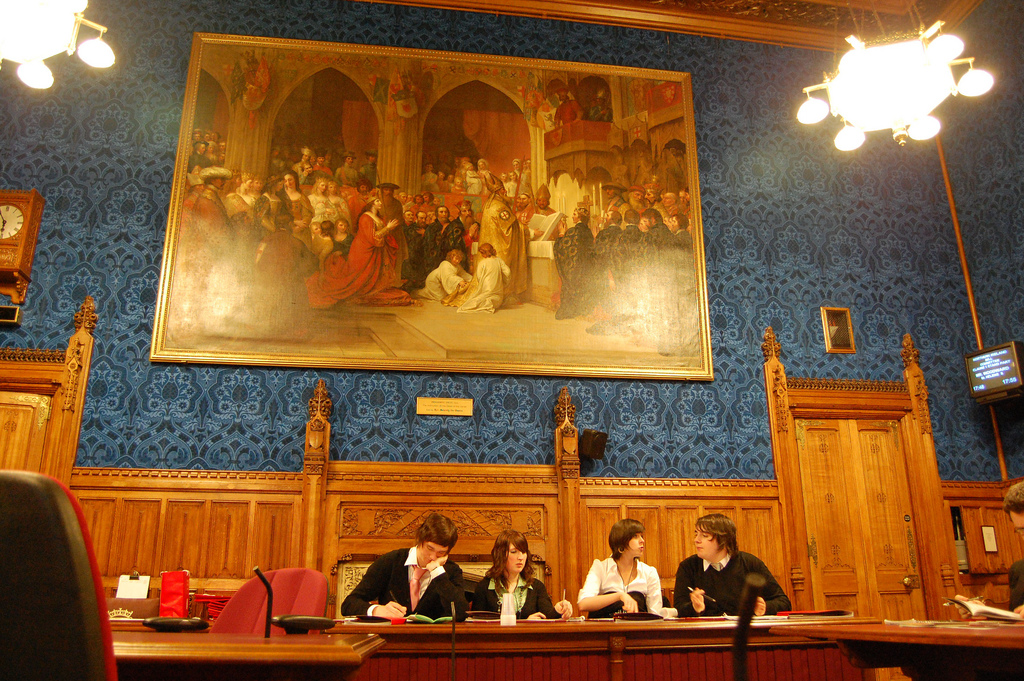The pressure is growing for Commons bill committee reform
In June 2013 the Constitution Unit published Fitting the Bill: Bringing Commons Legislation Committees into Line with Best Practice, proposing a series of changes to Commons bill committees. Last week the issue was brought back into the headlines, as John Bercow emphasised the need for reform, says Meg Russell.
At a recent lecture for the Study of Parliament Group, the Commons Speaker John Bercow suggested that reform of Commons public bill committees is overdue. His remarks closely chimed with proposals made in a Constitution Unit report published last year (and summarised here). With the end of the current parliament fast approaching, this topic should be high on the agenda for those planning for the parliament of 2015.
Bercow’s lecture commemorated Michael Ryle, who together with the late Sir Bernard Crick founded the SPG in 1964. One of the key proposals coming from Crick (and the Group in its early years) was the establishment of permanent specialist committees for the Commons. This led to the creation of today’s select committee system. But as we summarised in our report reformers originally wanted the committees to deal with government bills as well as general inquiries. This failed to happen, and legislative scrutiny remained in the hands of temporary non-specialist committees. Since then the reputation of the select committees has steadily grown, while the reputation of bill committees has generally been poor. Especially since the reforms recommended by the Wright committee were implemented in 2010, the gap between the two types of Commons committees has grown.
This gap is graphically illustrated by another event of the past few weeks – the election of Conservative backbencher Sarah Wollaston as chair of the Commons Health Select Committee (commented on here). Wollaston is a former GP, elected to the role by fellow MPs under the system facilitated by the Wright committee. Before this system came into force, select committee members were controversially chosen by party whips (albeit with some oversight by the Commons chamber).
This could lead to MPs considered too independent-minded (sometimes including subject experts) being kept off. But the old whip-based system still applies to the public bill committees, and its most controversial use in the 2010 parliament applied to Wollaston herself. She had sought appointment to the committee considering the coalition’s Health and Social Care bill, but was kept off – which attracted significant media attention and criticism of parliament. Her treatment under the two systems could not be more starkly different. The (elected) select committee system valued expertise; the (appointed) public bill committee system did the reverse.
Bercow later suggested that the same kind of democracy that was introduced in 2010 for the select committees should now be extended to the public bill committees. So did our report. The original Wright committee report – though public bill committees were strictly beyond its remit – commented (in paragraph 60) that the system should be reviewed. This proposal was endorsed by the Commons Political and Constitutional Reform Committee in 2013 (page 15). Soon after publication of our report, myself and Tony Wright gave evidence to the Commons Procedure Committee on the options for reform, yet this inquiry has got no further. So the matter remains very much on the agenda for the next parliament.
In recent years the Commons select committees have grown in reputation and profile, enhancing the reputation of parliament. They have also grown in influence, resulted in improved oversight and transparency of policy making, and improved job satisfaction for MPs. Reformed public bill committees could do the same. This is definitely a reform whose time has come.
—
This post originally appeared on the Constitution Unit blog
Note: this post represents the views of the author and not those of Democratic Audit or the LSE. Please read our comments policy before posting. The shortened URL for this post is: https://buff.ly/1tR4zOq
—
 Dr Meg Russell is Reader in British and Comparative Politics, and Deputy Director of the Constitution Unit in the School of Public Policy, University College London. She has written widely on the British parliament, British politics, and legislatures more broadly. She has also worked as an adviser to government, parliamentary committees, and public bodies. Her new book, The Contemporary House of Lords: Westminster Bicameralism Revived, was published by Oxford University Press in July 2013.
Dr Meg Russell is Reader in British and Comparative Politics, and Deputy Director of the Constitution Unit in the School of Public Policy, University College London. She has written widely on the British parliament, British politics, and legislatures more broadly. She has also worked as an adviser to government, parliamentary committees, and public bodies. Her new book, The Contemporary House of Lords: Westminster Bicameralism Revived, was published by Oxford University Press in July 2013.






 Democratic Audit's core funding is provided by the Joseph Rowntree Charitable Trust. Additional funding is provided by the London School of Economics.
Democratic Audit's core funding is provided by the Joseph Rowntree Charitable Trust. Additional funding is provided by the London School of Economics.
The pressure is growing for Commons bill committee reform says Meg Russell of the @ConUnit_UCL https://t.co/xgVprh9JUj
The pressure is growing for Commons bill committee reform, says Meg Russell https://t.co/ZRmkYdv6t7
The pressure is growing for Commons bill committee reform https://t.co/V7829XD6rl
The pressure is growing for Commons bill committee reform https://t.co/Q8OFcF25ta